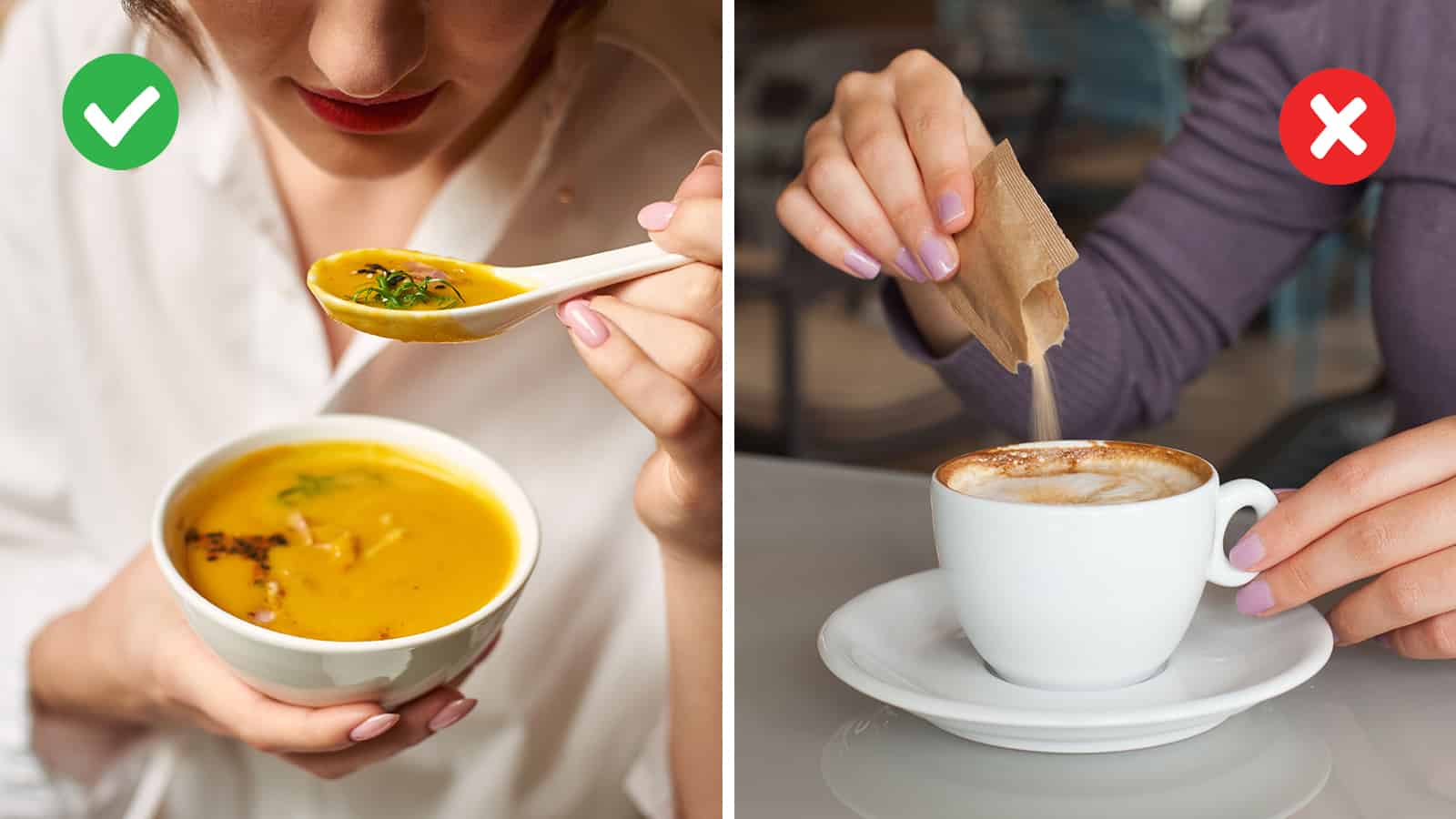If you’re like most people, you’re concerned about your weight. Whether you want to lose a few pounds or have a great deal to lose doesn’t matter, you must create a caloric deficit to accomplish your goal.
The Keto diet is all the rage these days.
This eating plan’s premise is that by giving up carbohydrates and eating more fat, you will lose massive amounts of weight. The theory is excellent, but many people fail because they overeat and don’t have a caloric deficit. Sure, you can have two double cheeseburgers and hold the bun according to the plan, but you also must consider the calories.
It doesn’t matter what diet strategy you follow or how you choose to eat; the bottom line is you must eat less to lose weight. For every 3,500 calories you eat, you will gain a pound, according to Today’s Dietician. Consequently., to lose a pound, you must also create a deficit of the same amount.
It’s believed that it’s safe to lose 1-2 pounds per week on a diet plan. To accomplish this task, you need to make sure that you create a caloric deficit of 7,000 in your week. It seems like a significant task, but it’s not that hard when you break everything down into daily increments.
Creating a Caloric Deficit
 Remember those trying word problems in math. Many kids hated them because it required you to look at the whole picture and then divide it into small parts. Dieting is much like these mathematical equations in that you must break them down into daily segments.
Remember those trying word problems in math. Many kids hated them because it required you to look at the whole picture and then divide it into small parts. Dieting is much like these mathematical equations in that you must break them down into daily segments.
Like those word problems, if you look at the big picture, it can become quite overwhelming. However, when you break it down into smaller bits, it’s easier to accomplish the task at hand. So, here are some ways that you can create a caloric deficiency each day to help you in your weight loss journey.
1. Eat Your Calories Don’t Drink Them
One of the most significant issues that most dieters face is drinking water. Some people hate the taste of plain water. However, science shows that your body needs water as it’s made up of about 60 percent.
Sure, soda, sport’s, and energy drinks, as well as juice, tastes way better. However, have you considered the sugar levels in these drinks? Take, for instance, Mountain Dew. It’s one of the most popular soft drinks around. Yet, a standard 12 ounce can has 170 calories, according to Fat Secret. On top of many calories, it has 46 grams of pure sugar.
Now, assume you had a soda at each of your main meals. Before you eat a morsel of food, you’ve already consumed 510 calories. If you’re striving to eat 1,500 calories a day, then one-third of your calories are going for something that won’t provide any nourishment. Additionally, you won’t survive on 1,000 calories a day, so you will have difficulty sticking to the plan if you don’t forgo the soda.
If you want to find an easy way to get rid of a few calories, switch to pure water. Those who absolutely cannot stomach it can try adding some lemon flavoring for a healthy boost.
2.Use A Smaller Plate
How many times have you sat down to dinner feeling ravenous, and you fill your plate to overflowing? About halfway through your meal, you realize that your eyes were bigger than your stomach. The key here is that you eat with your eyes first.
So, in using this theory, you should use a smaller plate. When people from other countries visit America, they are often overwhelmed by the plate’s sizes and portions. No wonder America is having an obesity epidemic, as people are eating way too much.
Switch from a standard 14″ dinner plate to a 10″. You will notice that you will be more inclined to take less food, and you will trick your brain into thinking you’re getting more.
3. Skip the Sauces
Do you love sauces and condiments? You could easily add hundreds of more calories to your meals by being inclined to dip. Few people dislike ketchup, but many don’t know that it has as much sugar as ice cream. One cup of ketchup has around 27 grams of sugar, and the same amount of vanilla ice cream has about 22 grams.
When you add condiments to your meals, you’re packing on useless calories. Skimp on these items or switch to calorie-free options like mustard.
4. Forgo the Sugar in Your Coffee
Do you prefer one lump or two of sugar in your coffee? Not only is sugar not good for you, but you’re adding useless calories to your day. Try using natural sweeteners like honey or even spices like cinnamon to kick your coffee’s flavor. It will be healthier and help save your calories for real food.
5. Count Your Calories
One of the simplest ways to create a caloric deficit is by counting your calories. If you mindlessly eat during the day, then it’s hard to control your intake. Using an app that helps you see all the nutrient information in your consumption, you can quickly learn how to shave off a few extra calories for the day.
6. Fill Up on Vegetables
If you want to get proper nutrition for fewer calories, you need to fill up on vegetables. Loading up on greens and other sustainable veggies can fill your stomach without causing you to go over your calories. Plus, all the fiber from these natural plants will help ensure your digestive system is running smoothly.
 7. Make Sure Each Meal Has Protein
7. Make Sure Each Meal Has Protein
Your body needs ample amounts of protein. Protein helps to balance blood sugars as well as fuel your system. You should have about four ounces with each meal, and it can help fill you up so that you eat less.
8. Do Some Food Swapping
Sure, you want those French fries because your stomach is craving them. However, it will be more calorie efficient to choose an extra helping of veggies or even some fruit. Learning to make swaps on greasy, calorie-laden items can become effortless once you do it a few times.
9. Don’t Pile on the Cheese
Have you ever been to those fancy Italian restaurants that pile your entrée with mounds of freshly grated cheese? Sure, it tastes fantastic, but it’s also packing on the pounds. Cheese is not a low-calorie food, and it’s not going to help you lose weight if you overeat it.
There’s nothing worse than losing 500 calories of your daily intake to cheese when there are so many other things that would taste better. One cup of mozzarella cheese has a whopping 341 calories in it.
10. Read the Labels
Just because a product uses eye-catching keywords doesn’t mean it’s healthy. Read further if you see things like:
- Low fat
- Keto-friendly
- Sugar-free
- Fat-free
- Heart-healthy
- Organic
According to the National Institutes of Health, passing up highly processed food leads to better health, weight loss, and reduced risk of metabolic disease.
So remember…
Marketing ploys don’t care about your bottom line, as they want to sell the product. No law prohibits them from saying these phrases even if it’s not 100 percent true. So, read the labels and make sure there are no hidden sugars or calories in your favorite items. After all, few know that ketchup is a very unhealthy choice.
11. Avoid Second Helpings
No matter how good the food was at dinner, don’t go back for a second helping. Essentially, when you grab two servings, you’re eating double the number of calories you need to at one meal. You won’t create a caloric deficit with these practices.
12. Opt for Thin Crust Pizza Rather Than Pan
If pizza is one of your favorite foods, then you want to find ways to have it with fewer calories. You can do this easier when you switch to a thin crust and use veggies for toppings rather than meat. Most pizza places have a plethora of toppings as well as various crust offerings. Some even have crusts made from cauliflower, which is even a better choice.
 Final Thoughts on Creating A Caloric Deficit Each Day
Final Thoughts on Creating A Caloric Deficit Each Day
Many people are eager to jump on the next fad diet and hope to lose massive weight. Perhaps dieting has been made to be more complicated than necessary. See, according to science, a pound is 3,500 calories, so you merely need to create a deficit to reduce your size.
Rather than approaching your dieting as this humungous task that requires days of planning and buying supplements and devices you don’t need, why not just count your calories? Calorie counting has been working for folks for centuries, and it’s a free way to stay healthy.
Don’t make creating a caloric deficit overwhelming. Start small by cutting out soda, piling on more vegetables, using a smaller plate, drinking more water, and choosing healthier options of your favorite foods. You should see the pounds start to melt away as you make healthier choices in your eating habits.


















